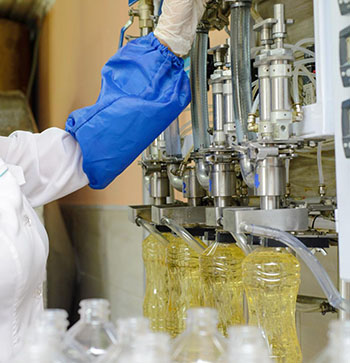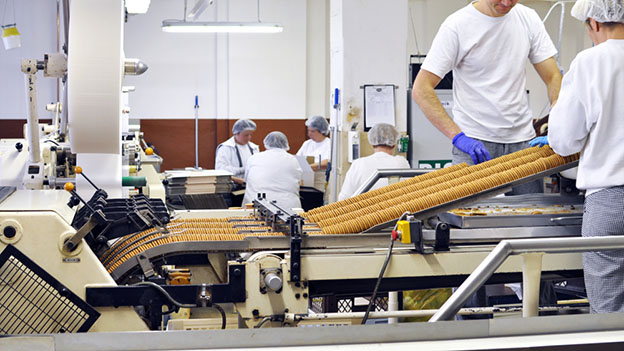Source: industryviews/Shutterstock.com
We have all hired a contractor at one point or another. We’re used to hiring a third-party to clean our house, fix our kitchen sink or provide IT support. But what about the manufacturing process? A new trend known as “contract manufacturing” is exploding in popularity across a range of industries, most notably food and beverage processing. Some of the world’s largest producers and sellers of food are starting to work with independent producers as a way of jump starting their inventories.
Find out why contract manufacturing is such a good fit for the food and beverage industry.
What Is Contract Manufacturing?
Essentially, contract manufacturing is when a company hires another party to produce goods. The hiring company will usually handle the branding, marketing and distribution of the product in question, while the party in question focuses on making the product.
Order Your Collapsible Bulk Containers Today!
Warehouse managers are starting to turn their properties into contract-for-hire businesses that can be used by large corporations and retailers. Small eCommerce retailers and major chains, like Whole Foods, can partner with these facilities as a way of increasing their reach across the country.
When it comes to the impact of contract manufacturing on profitability, the results are clear. Contract manufacturing can increase capacity utilization as managers take on new clients, but it may hinder innovation in the long run. Companies may start to get complacent as they begin advertising their services to large retailers and corporations. However, some facilities may focus on improving their approach to manufacturing as a way of edging out the competition. For example, switching to collapsible bulk containers can improve efficiency, making the facility more attractive to potential clients.
Food and beverage companies will hire outside facilities to either produce one of their own signature recipes or ask the contractor to manufacture their own products which will then be sold to the hiring company for resale. Companies should make sure the contractor has the right equipment and supplies to facilitate production. Once these products are made, the hiring company will distribute these products directly to consumers or various retail outlets.
Here are some of the ways this exchange can benefit the manufacturing process.
Source: Syda Productions/Shutterstock.com
Increase Variety
Companies can use contract manufacturing to quickly expand their offerings to consumers. Instead of producing everything on site, a single corporation can quickly facilitate deals with manufacturing facilities all over the country and beyond. This would allow them to sell and distribute a wide range of products to consumers in different parts of the world without breaking ground on a new facility.
Metal Storage Bins Make Organization Easy
Food and beverage retailers may see contract manufacturing as an opportunity to increase their share of the market. Large corporations can try their hand at producing different types of products, including those outside their wheelhouse, without the added risk of investing in additional equipment.
Taking on new clients gives individual facilities the chance to produce a wide variety of products and goods. They may have to process different recipes or items using the same equipment which could present additional health and safety considerations. Managers can increase their capacity and throughput by catering to a range of food and beverage manufacturers.
Low Risk, Big Reward
From a business perspective, hiring a contractor is often much easier than building a new manufacturing facility from scratch. This allows companies to experiment with different types of food and beverages without investing a great deal of time and money. Instead of engineering a new product from scratch, companies can use the existing infrastructure of a contractor to get their product out the door as quickly as possible. This helps companies appeal to a wide range of consumers without breaking their budget in the process.
For existing manufacturing facilities, working with outside companies can lead to new streams of revenue. They can create contracts with large corporations without having to sell and market these products to the public. As long as the company in question completes the transaction, the facility will make a profit.
Source: Serhii Krot/Shutterstock.com
Focus on Security and Safety
Food and beverage companies need to make sure their contractors are adhering to the latest health and safety standards. Warehouse managers should go to great lengths to make sure their facility is up to the client’s standards. For example, storing food and beverages in metal storage bins can improve security and consumer confidence.
IBC totes are also perfect for transporting large quantities of fluids and dry goods like grain, rice and wheat. What is an IBC tote? It’s a large plastic container that comes strapped to a pallet for secure handling and transportation. Facility managers and employees should use these containers to better manage their ingredients in the warehouse.
Contract manufacturing can be a blessing to large corporations and individual facilities. Use this information to make the right decision for your business.


